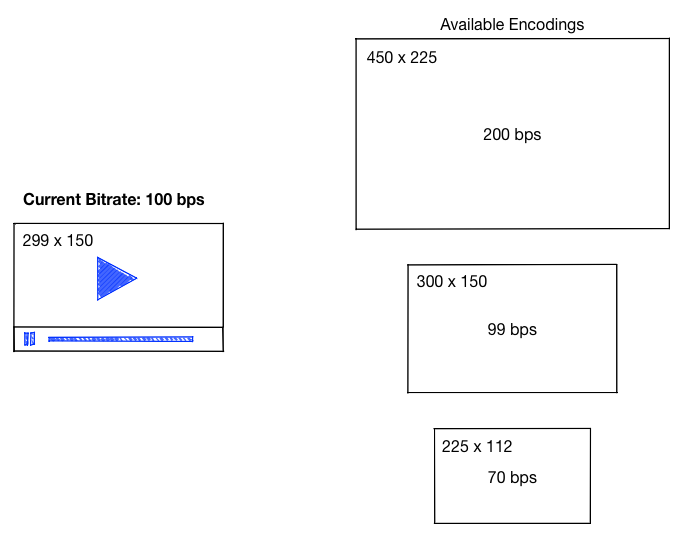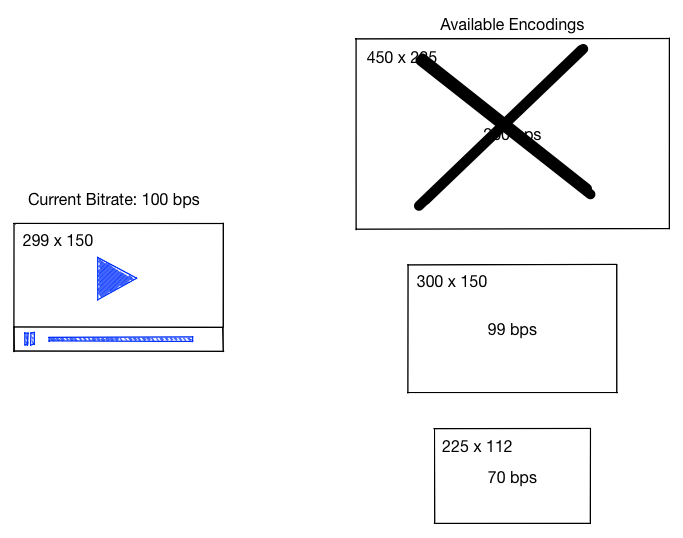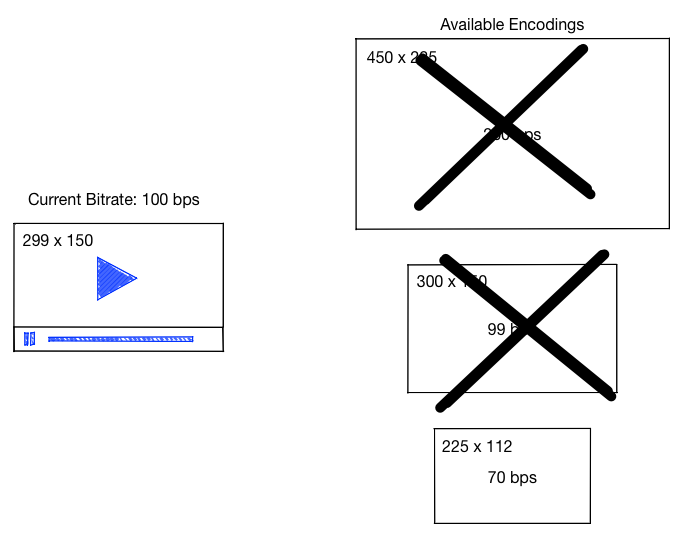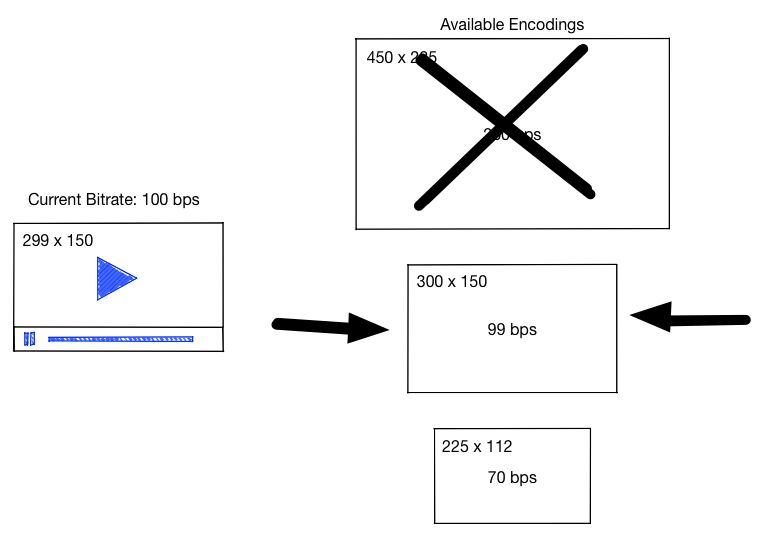1.9 KiB
Adaptive Switching Behavior
The HLS tech tries to ensure the highest-quality viewing experience possible, given the available bandwidth and encodings. This doesn't always mean using the highest-bitrate rendition available-- if the player is 300px by 150px, it would be a big waste of bandwidth to download a 4k stream. By default, the player attempts to load the highest-bitrate variant that is less than the most recently detected segment bandwidth, with one condition: if there are multiple variants with dimensions greater than the current player size, it will only switch up one size greater than the current player size.
If you're the visual type, the whole process is illustrated below. Whenever a new segment is downloaded, we calculate the download bitrate based on the size of the segment and the time it took to download:
First, we filter out all the renditions that have a higher bitrate than the new measurement:
Then we get rid of any renditions that are bigger than the current player dimensions:
We don't want to signficant quality drop just because your player is one pixel too small, so we add back in the next highest resolution. The highest bitrate rendition that remains is the one that gets used:
If it turns out no rendition is acceptable based on the filtering described above, the first encoding listed in the master playlist will be used.
If you'd like your player to use a different set of priorities, it's
possible to completely replace the rendition selection logic. For
instance, you could always choose the most appropriate rendition by
resolution, even though this might mean more stalls during playback.
See the documentation on player.hls.selectPlaylist for more details.



